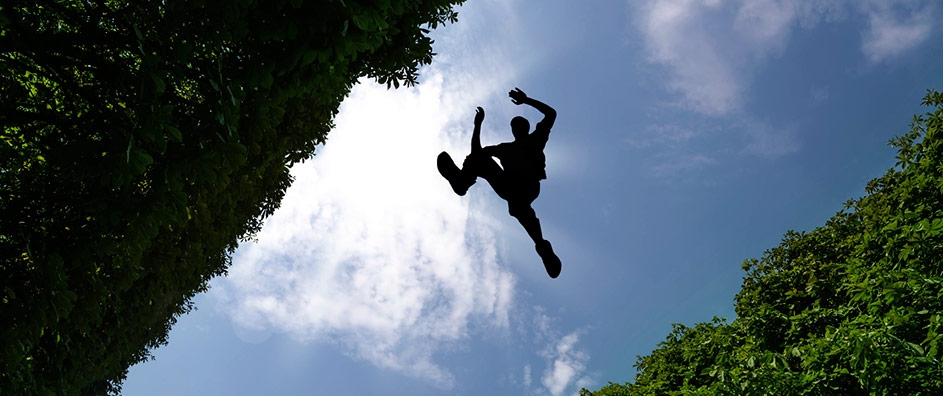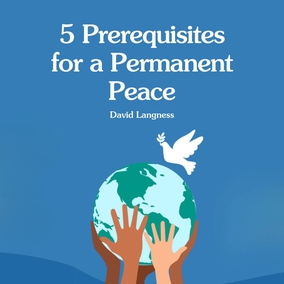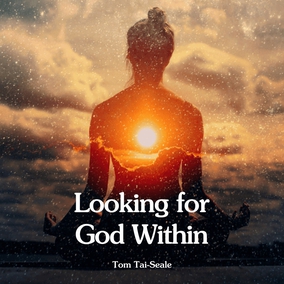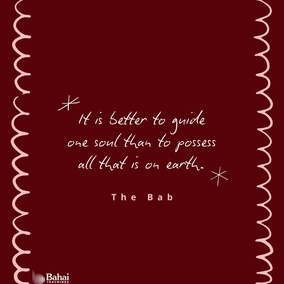The views expressed in our content reflect individual perspectives and do not represent the authoritative views of the Baha'i Faith.
Be strong and be of good courage. – Deuteronomy 31:23
Courage is never to let your actions be influenced by your fears. – Arthur Koestler
Courage is grace under pressure. – Ernest Hemingway
Courage is the most important of the virtues, because without courage you can’t practice any other virtue consistently. You can practice any virtue erratically, but nothing consistently without courage. – Maya Angelou
Strive as much as ye can to turn wholly toward the Kingdom, that ye may acquire innate courage and ideal power. – Abdu’l-Baha, Selections from the Writings of Abdu’l-Baha, p. 206.
Everyone wants courage. We admire courageousness in others, and hope to acquire it ourselves—but our fears turn us into cowards.
So how do we develop the noble attribute of courage, and the power to face up to life’s hard tests? How can we confront our fears, and in the process, minimize or eliminate them?
As a start, let’s define courage. The standard dictionary definition—valor or bravery—doesn’t really describe it very well. In the older derivations of the word, courage meant fortitude, firmness, perseverance and resoluteness—the quality of constancy and steadfastness. Socrates defined courage as “endurance of the soul.” Thomas Aquinas called it fortitude—“the deliberate facing of dangers and toils.” Rather than seeming reckless or rash, the Tao Te Ching claims that courage exemplifies love and patience. Nietzsche said that true courage allows us to “re-baptize our evil qualities as our best qualities.”
So if you’d like to develop the power of fortitude and courage, you’ll want to work on facing and changing the qualities in yourself that provoke fear and prevent spiritual growth.
The Baha’i teachings ask those who want to acquire “innate courage and ideal power” to “turn wholly toward the Kingdom”—but what does that mean?
Here’s one way to think about it from Abdu’l-Baha:
There is no greater result than bonds of service in the divine Kingdom and attainment to the good pleasure of the Lord. Therefore, I desire that your hearts may be directed to the Kingdom of God, that your intentions may be pure and sincere, your purposes turned toward altruistic accomplishment unmindful of your own welfare; nay, rather, may all your intentions center in the welfare of humanity, and may you seek to sacrifice yourselves in the pathway of devotion to mankind. Even as Jesus Christ forfeited His life, may you, likewise, offer yourselves in the threshold of sacrifice for the betterment of the world; and just as Baha’u’llah suffered severe ordeals and calamities nearly fifty years for you, may you be willing to undergo difficulties and withstand catastrophes for humanity in general. May you bear these trials and tests most willingly and joyously, for every night is followed by a day, and every day has a night. – Abdu’l-Baha, The Promulgation of Universal Peace, p. 54.
Not exactly your standard pop culture definition of courage, is it? When most of us think of courage, we think of a noble hero fighting great odds and achieving victory over his foes. The Baha’i teachings define it differently—as an altruistic sacrifice of self-interest for the service of others.
Baha’u’llah put it this way:
The source of courage and power is the promotion of the Word of God, and steadfastness in His Love. – Baha’u’llah, Tablets of Baha’u’llah, p. 155.
Baha’is strongly believe that the new revelation brought by Baha’u’llah contains the blueprint for a new world order and a new human unity. But Baha’is don’t promote that revelation by force or by proselytizing. Instead, the Baha’i teachings ask everyone to promote the Word of God with their deeds:
…you must become eminent and distinguished in morals. In the love of God you must become distinguished from all else. You must become distinguished for loving humanity, for unity and accord, for love and justice. In brief, you must become distinguished in all the virtues of the human world — for faithfulness and sincerity, for justice and fidelity, for firmness and steadfastness, for philanthropic deeds and service to the human world, for love toward every human being, for unity and accord with all people, for removing prejudices and promoting international peace. Finally, you must become distinguished for heavenly illumination and for acquiring the bestowals of God. – Abdu’l-Baha, The Promulgation of Universal Peace, p. 190.
When that happens, the Baha’i writings say, the power of courage appears, and that courage draws the hosts of heaven to help us:
O ye servants of the Sacred Threshold! The triumphant hosts of the Celestial Concourse, arrayed and marshalled in the Realms above, stand ready and expectant to assist and assure victory to that valiant horseman who with confidence spurs on his charger into the arena of service. Well is it with that fearless warrior, who armed with the power of true Knowledge, hastens unto the field, disperses the armies of ignorance, and scatters the hosts of error, who holds aloft the Standard of Divine Guidance, and sounds the Clarion of Victory. By the righteousness of the Lord! He hath achieved a glorious triumph and obtained the true victory. – Abdu’l-Baha, Selections from the Writings of Abdu’l-Baha, p. 264.
Next: Facing Pain, Tests and Trials with Infinite Joy
You May Also Like
Comments

















and "steadfastness", and the quotations of Maya Angelou and
Arthur Koestler. It sounds like detachment from our selves is what
most encourages courage. It's hard
to be brave when we're on the defensive! I hope to some day
become "armed" enough
"with the power of true Knowledge"
that I will "hasten unto the field"!